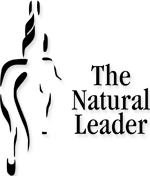 My work is focused on being effective. Whether I am starting a colt, coaching a student of horsemanship or facilitating a corporate retreat I try to be effective with my communication so I see a demonstrated change in a behaviour. Effective ranges from saying something in a different way to nothing at all. I hope throughout the experience the horse, the human or the team also see me as someone they wouldn’t mind spending time with.
My work is focused on being effective. Whether I am starting a colt, coaching a student of horsemanship or facilitating a corporate retreat I try to be effective with my communication so I see a demonstrated change in a behaviour. Effective ranges from saying something in a different way to nothing at all. I hope throughout the experience the horse, the human or the team also see me as someone they wouldn’t mind spending time with.
The single greatest challenge I have encountered with people working to either improve their horsemanship or leadership capacity is helping them develop a clear understanding of the difference between natural and effective, nice versus respected and assertive instead of aggressive. All basically the same thing from three different perspectives.
Many adherents to natural horsemanship have difficulty discerning between nice and effective methods of applying that philosophy. Natural for some reason has been translated into nice, soft and quiet and their horse literally loves them to death. When the human begins to recognize what they are doing doesn’t appear to be working they continue to think in the same way so seek out a “natural gentle” gimmick of which there are thousands. The end result: yet another way to not be clear on what you are asking nor getting the respect required.
In horsemanship an intention has to translate through our body language for a single clear result. Sometimes we just need to speak, non-verbally, a little louder in order for our cues to be perfectly clear and then we can go back to a whisper. While we may talk about partnerships with our horse in reality we are looking at a benevolent dictatorship at best – we want the horse to want to excel and want to be with us, but sometimes our leadership style requires that we stand firm until we see the intended result.
Which is why for me there is such a direct correlation between the qualities required for both a good horseman and a good leader. There are few, if any, shortcuts to the ideal image of you and your horse or you and your team. I’ve listened to so many people talk about how well they get along with everyone at work, in one breath and then express complete exhaustion in the next. Sometimes being plain nice isn’t enough, it requires that you be effective.
For leadership to be effective it may mean changing how you approach a situation, employing a different leadership style. Being nice about a difficult conversation is rarely effective as chances are you won’t say what needs to be said. What I continue to marvel at is as a person realizes the horses behaviour will adapt to what they present, as they become more effective, they begin to see they are the source of the solution. To use a well worn phrase, they feel empowered to make a change in their own leadership style in order to be more effective in what they do.
There are many great reference tools out there books, programs, coaches find what helps get you unstuck so you can see a change in your habits and the behaviours of others – so you don’t feel that people too are loving you to death


